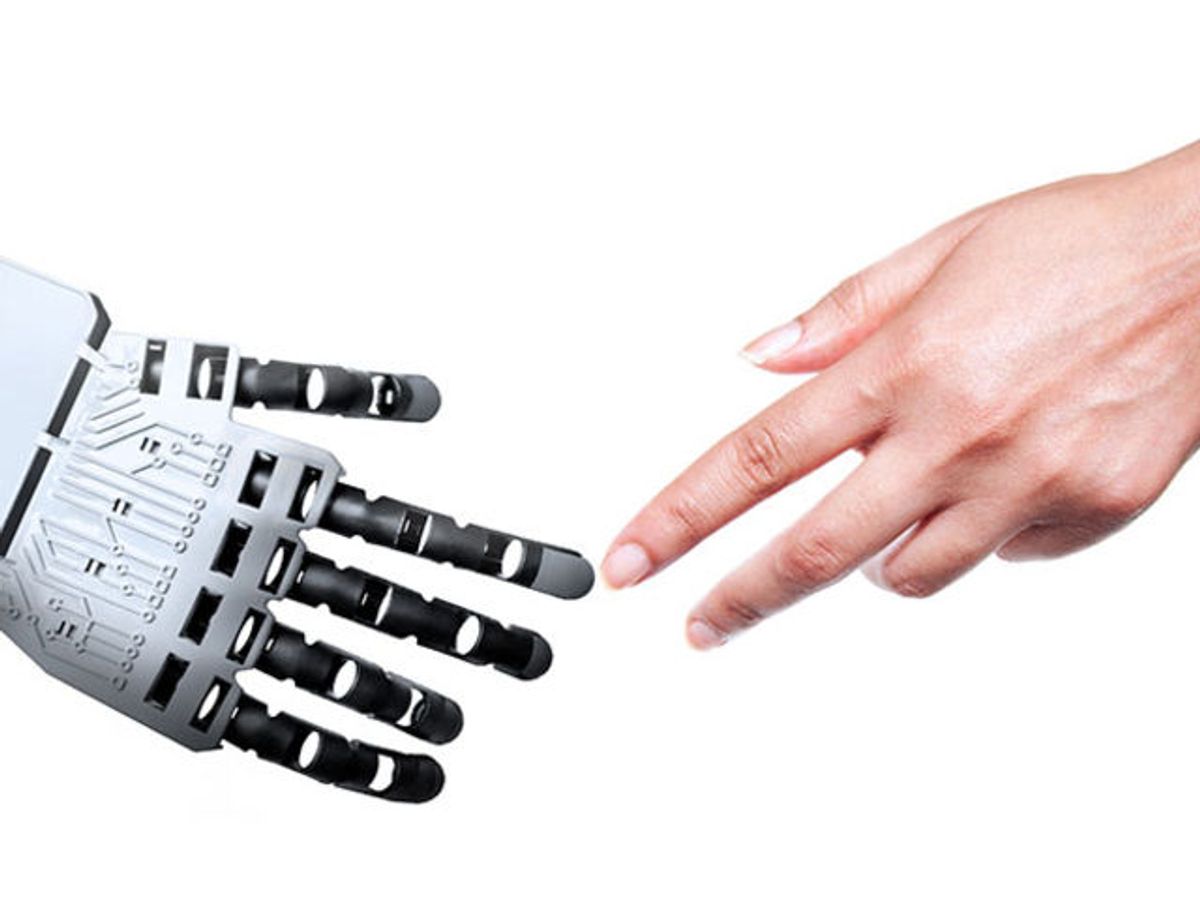For centuries, technological innovation has created jobs and improved standards of living. Artificial intelligence might change that. For starters, AI-driven automation is not going to treat workers equally. A recent White House called Preparing for the Future of Artificial Intelligence [PDF] acknowledges that AI could make low- and medium-skill jobs unnecessary, and widen the wage gap between lower- and higher-educated workers.
The good news is that policymakers and technology experts are thinking about this, and instituting plans aimed at avoiding the “Robots are going to take all of our jobs!” doomsday scenario. Academics and industry practitioners discussed AI’s job impact at the White House Frontiers Conference last week. And they were confident and optimistic about our ability to adapt.
“The best solutions are always going to come from minds and machines working together,” said Andrew McAfee, co-director of the MIT Initiative on the Digital Economy, and author of “The Second Machine Age.” But that balance of minds and machines won’t always be the same. In five years, that balance will be totally different in, say, customer service and driving.
The good news is that the U.S. economy is really good at creating new jobs once old ones get automated. As an example, McAfee pointed out that the year of peak manufacturing employment in the United States was 1979. Every year since, the number of people working in the industry has gone down even though output goes up. “Those people didn’t become unemployed and their families didn’t starve,” he said.
Every industrial age has caused massive transformation, said Guruduth Banavar, VP of cognitive computing at IBM. Some jobs get redefined, some are made obsolete, and new ones are created. The AI-fueled revolution will do the same thing, by augmenting the intelligence and skills of humans, he believes.
So the onus is now on policymakers, technologists, educators, and all of us. We could go the way of Luddites and fear the rise of machines, or prepare ourselves for new ways to do our jobs.
“People have to learn from the get-go that reasoning and learning machines are going to be part of their career…their lives,” Banavar said. “They have to learn in every profession that this is how we’re going to do our jobs. We need to rethink social, educational and economic implications, and we’re in the process of figuring that out right now. The transformation is happening.”
That means training the current workforce to use technologies like machine learning and data analytics, said Jeanette Wing, corporate VP at Microsoft Research. But it also means a change in how we educate our future workforce. “It’s going to be more than ‘What should a typical computer science undergraduate learn?’” she said. “It’s going to be other fields that will have to figure out what they should be teaching their students—whether they’re graduating with a business degree or history degree. That’s a challenge for universities to grapple with now.”
Prachi Patel is a freelance journalist based in Pittsburgh. She writes about energy, biotechnology, materials science, nanotechnology, and computing.



